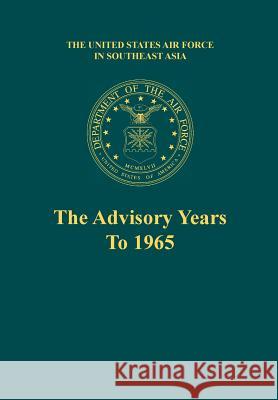The Advisory Years to 1965 (the United States Air Force in Southeast Asia Series) » książka
The Advisory Years to 1965 (the United States Air Force in Southeast Asia Series)
ISBN-13: 9781782664437 / Angielski / Miękka / 2013 / 414 str.
Tells the story of the Air Force's involvement in the region from the end of the second World War until the major infusion of American troops into Vietnam in 1965. During these years, and most noticeably after 1961, the Air Force's principal role in Southeast Asia was to advise the Vietnamese Air Force in its struggle against insurgents seeking the collapse of the Saigon government. This story includes some issues of universal applicability to the Air Force: the role of air power in an insurgency, the most effective way to advise a foreign ally, and how to coordinate with other American agencies (both military and civilian) which are doing the same thing. It also deals with issues unique to the Vietnamese conflict: how to coordinate a centralized, technological modern air force with a feudal, decentralized, indigenous one without overwhelming it, and how best to adapt fighter, reconnaissance, airlift, and liaison planes to a jungle environment.
Tells the story of the Air Forces involvement in the region from the end of the second World War until the major infusion of American troops into Vietnam in 1965. During these years, and most noticeably after 1961 , the Air Forces principal role in Southeast Asia was to advise the Vietnamese Air Force in its struggle against insurgents seeking the collapse of the Saigon government. This story includes some issues of universal applicability to the Air Force: the role of air power in an insurgency, the most effective way to advise a foreign ally, and how to coordinate with other American agencies (both military and civilian) which are doing the same thing. It also deals with issues unique to theVietnamese conflict: how to coordinate a centralized, technological modern air force with a feudal, decentralized , indigenous one without overwhelming it, andhow best to adapt fighter, reconnaissance, airlift, and liaison planes to a jungle environment.











